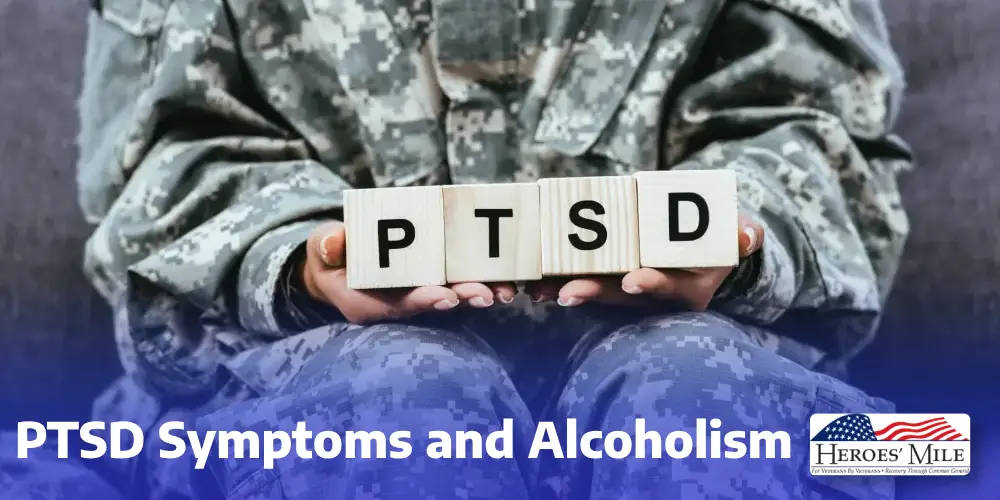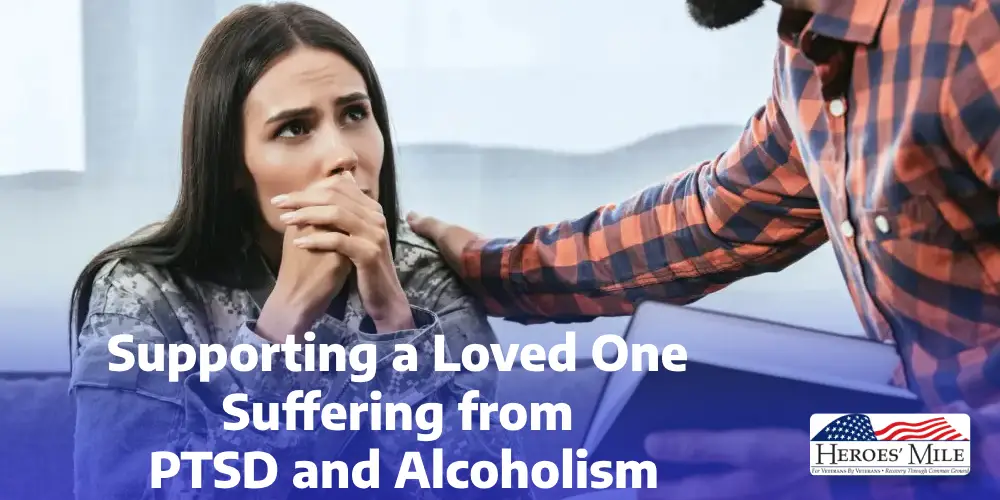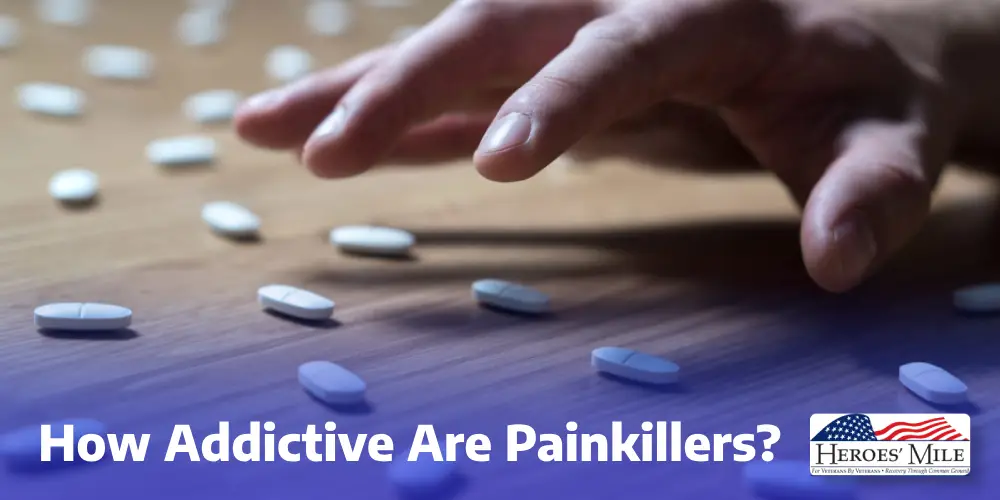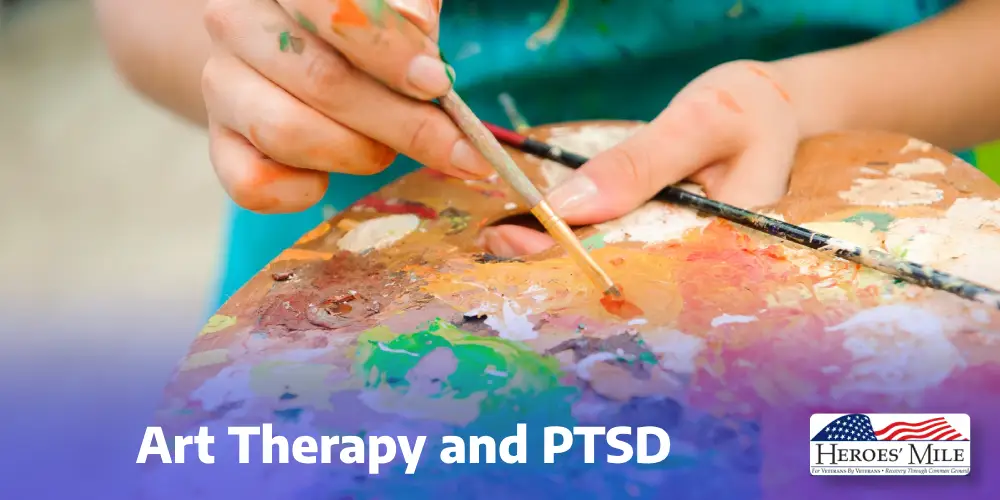November is Veterans’ Month, and Heroes’ Mile wants to honor the lives of our veterans while also recognizing the mental health challenges that many current and former military members endure.
Veterans have unique mental health requirements. Many had personal experiences with conflict and horrendous brutality while serving in the armed forces, making them prone to veteran alcoholism and substance misuse, exacerbated by specific mental health conditions such as PTSD.
PTSD Symptoms and Alcoholism

PTSD Symptoms and Alcoholism
Effects of Alcohol Abuse and PTSD
Alcoholism, like other addictive disorders, is a biological condition with a variety of environmental factors. While there is evidence that certain persons are susceptible to developing an alcohol consumption issue due to a genetic predisposition, the disorder is frequently precipitated by stress and trauma.
Alcoholism can be difficult to diagnose since not everyone who drinks significantly is addicted. However, there are a few common indications that suggest therapy is required:
- The effects of having alcohol cravings
- Claiming that feeling normal is impossible unless you’ve had a few drinks
- Inability to control or minimize alcohol intake in any way
- Consuming excessive amounts of alcohol
- Ignoring commitments and responsibilities
- Engaging in illegal behaviors like DUI or starting a fight
- Experience withdrawal symptoms, including nausea and sweating
- Drinking despite unfavorable implications in your personal or professional life
Substance Abuse in Veterans with PTSD
When you have PTSD, it might feel like there is no way out of the terrifying dreams, intense flashbacks, and hyper-aroused condition you are experiencing.
As a result, many veterans with PTSD turn to alcohol or substance use to dull their traumatic memories and experiences.
The difficulty with alcohol and drugs is that they do not provide a long-term remedy for PTSD symptoms. They may tend to take the edge off initially, but with time, you may discover that you need far more of the substance to have the same effects.
Trauma and PTSD Can Lead to Problems with Alcohol
Going through a trauma—whether or not you develop PTSD—can lead to alcohol use problems. Up to three quarters of people who survived abuse or violent traumatic events report drinking problems. Up to a third of those who survive traumatic accidents, illness, or disaster report drinking problems. Alcohol problems are more common for those who experience trauma if they have ongoing health problems or pain. Read more at PTSD.VA.GOV
How Alcohol Use Can Lead to Dependency and Addiction
Alcohol consumption can lead to addiction as well as post-traumatic stress disorder (PTSD). They may discover that they need to drink more and more to attain the desired impact as they use alcohol to achieve emotional relief. This can lead to addiction as their tolerance grows.
Using alcohol to numb and avoid PTSD symptoms indicates PTSD itself is not being treated, and the source of the sensations, emotions, and memories is still being ignored.
Supporting a Loved One Suffering from PTSD and Alcoholism
If a loved one is suffering from both PTSD and alcoholism, it’s critical to know how to get them the help they require.
Making a loved one feel supported and understood can improve the chances of a successful recovery.
Recovery is attainable if you or a loved one is battling with drinking and PTSD. Heroes’ Mile’s professionals provide all-encompassing therapy for drug abuse and co-occurring illnesses.

Supporting a Loved One Suffering from PTSD and Alcoholism
Treatment Programs for Veteran Alcoholism
If you or someone you care about has PTSD plus an alcohol problem, it’s crucial to realize that you should seek treatment for both the disease and the alcohol misuse. Both the core cause of alcohol dependency and alcoholism itself can be cured by treating both. At Heroes’ Mile, we are here to help you; be sure to get in touch with us as soon as possible to explore your choices.
Video
The alcohol con – TED Talk
Are you being conned? Our relationship with alcohol is often complicated, and masked by our own reassurances that we are in control. Michaela Weaver offers her own personal insight into how alcohol can con us, and what we can do about it.
News Audio
Women Now Drink As Much As Men — Not So Much For Pleasure, But To Cope – NPR
Victoria Cooper thought her drinking habits in college were just like everyone else’s. Shots at parties. Beers while bowling. Sure, she got more refills than some and missed classes while nursing hangovers, but she couldn’t have a problem, she thought.
FAQ
- How does alcohol affect PTSD symptoms?
Alcohol can temporarily numb emotional pain, but it often worsens PTSD symptoms over time. It can increase anxiety, depression, nightmares, and flashbacks, making it harder to cope with trauma. - Why do people with PTSD use alcohol?
Many individuals with PTSD use alcohol as a way to self-medicate and escape intrusive thoughts or distressing memories. However, this can lead to dependence and a cycle of worsening symptoms. - Can alcohol make PTSD treatment less effective?
Yes, alcohol use can interfere with PTSD treatment by making it harder to engage in therapy, process emotions, and develop healthy coping mechanisms. It can also reduce the effectiveness of medications prescribed for PTSD. - Does drinking alcohol increase the risk of developing PTSD?
While alcohol does not cause PTSD, excessive drinking can increase the likelihood of experiencing trauma and impair a person’s ability to process it, making PTSD more severe if it does develop. - What are healthier alternatives to alcohol for managing PTSD symptoms?
Healthy alternatives include therapy (such as Cognitive Behavioral Therapy or EMDR), mindfulness, exercise, support groups, and medication prescribed by a doctor. Seeking professional help is key to managing PTSD without alcohol.



